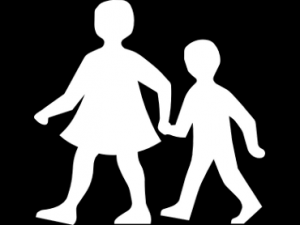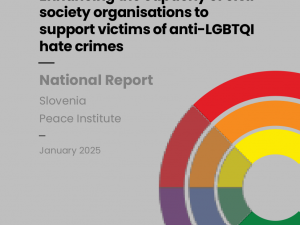Katarina Vučko
Consultant
The state must provide redress for all victims of erasure, regardless of their status in Slovenia – they were all erased illegally and their rights were violated.
– Katarina Vučko on remedying the violations of human rights of the erased persons of Slovenia
Katarina Vučko obtained her degree in law in 2006 at the University of Ljubljana, Faculty of Law. In 2012 she passed the State Legal Exam of the Republic of Slovenia. In 2007 she started to work at the Legal Information Centre of Non-governmental Organizations – PIC in Ljubljana as legal advisor in the field of human rights and asylum.
In 2009 she joined the Peace Institute where she works as a legal consultant and researcher in the field of human rights. She is working on projects in the field of legal status of migrants, asylum and non-discrimination issues, and carrying out legal analysis, lectures and workshops. She provides legal aid for the erased people of Slovenia.
Featured project
-

None of Europe’s Children should be Stateless
The study of the presence/absence, content and implementation of legislative safeguards for the prevention of childhood statelessness at the national level in these countries.
Projects
- Unforgotten: Advocating for the Rights of the Erased
- Enhancing the capacity of civil society organisations to support victims of anti-LGBTQI+ hate crimes (ENACT)
- EU Charter of Fundamental rights: Awareness raising and Instruments to promote a culture of Rights (FAIR)
- SERENY – Strengthening approaches for the prevention of youth radicalisation in prison and probation settings
- Research network FRANET
- JUSTICE FOR ALL: Enhancing the Rights of Defendants and Detainees with Intellectual and/or Psychosocial Disabilities: EU Cross-Border Transfers, Detention and Alternatives
- Counter-hate: Improving the assistance of victims of hate crimes through a victim-centred and intersectional approach
- Complementary Pathways in South-East Europe (COMP4SEE)
- MIPEX – The Migrant Integration Policy Index
- Trial Waiver Systems in Europe (TWSE)
- ARVID – Advancing Access to Rights under Victims’ Directive for Persons with Disabilities
- Statelessness Index
- Human Rights Guide
- VICATIS – Victim-centered Approach to Improving Support Services
- NHRI: Strengthening the rights of persons suspected or accused in criminal proceedings – the role of National Human Rights Institutions
- Developing an EU Training Module for the Victims’ Directive
- Inside Police Custody: Application of EU Procedural Rights
- Dignity at Trial: Enhancing Procedural Rights of Persons with Intellectual and/or Psychiatric Impairments in Criminal Proceedings: Exploring the Need for Action
- Strengthening procedural rights in criminal proceedings: effective implementation of the right to a lawyer/legal aid under the Stockholm Programme
- None of Europe’s Children should be Stateless
- Obtaining Political Equality by New Names – OPENN
- MIPEX – Migrant Integration Policy Index
- CEINAV – Cultural Encounters in Interventions Against Violence (Violence, Inequality, and Human Rights)
- Rights on the Move – Rainbow Families in Europe
- MADE REAL – Making Alternatives to Detention in Europe a Reality by Exchanges, Advocacy and Learning
- The Erased: Towards Justice and Accountability
- RED, Network Combating Racism, Xenophobia and Intolerance
- SIAPREM – Support for Intersectional Approach in Antidiscrimination Programs for Roma, Migrants and Elderly
- Participating in a Coordination of NGOs in the Field of Asylum
- The Erased: Remedying Human Rights Violations
- The Erased People of Slovenia – A Challenge of a Young Nation-State
- National Focal Point of the European Union Agency for Fundamental Rights
Featured publication
-

National Report on Anti-LGBTIQ+ Hate Crime in Slovenia Released
The report underscores the importance of recognizing and addressing all forms of anti-LGBTIQ+ harm to better support affected communities.
